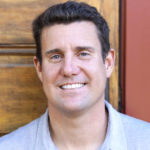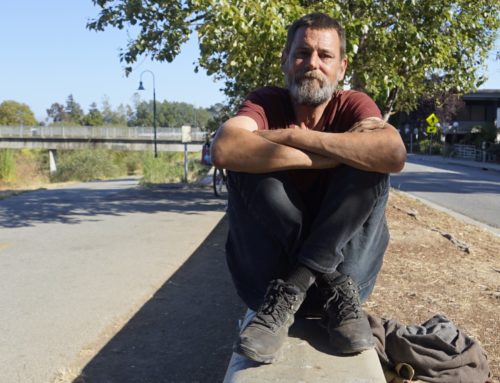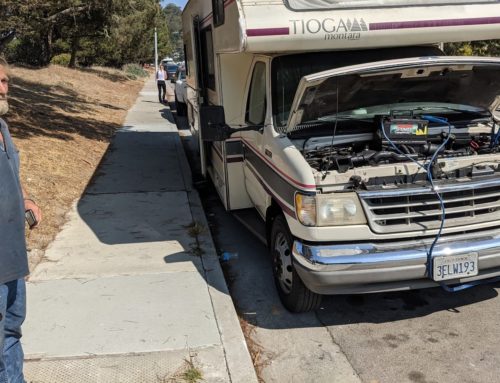Santa Cruz County has seven confirmed cases of the coronavirus as of Thursday night. County leaders now have evidence that the virus has spread within the community. Lives are disrupted by many closures and cancellations, including an announcement Thursday that public Santa Cruz County schools will be closed next week.
We talk to county epidemiologist Mikala Caton about the county’s testing capacity. We hear tips on how to be prepared, not scared: what you need to know to stay healthy and prevent the virus’ spread.
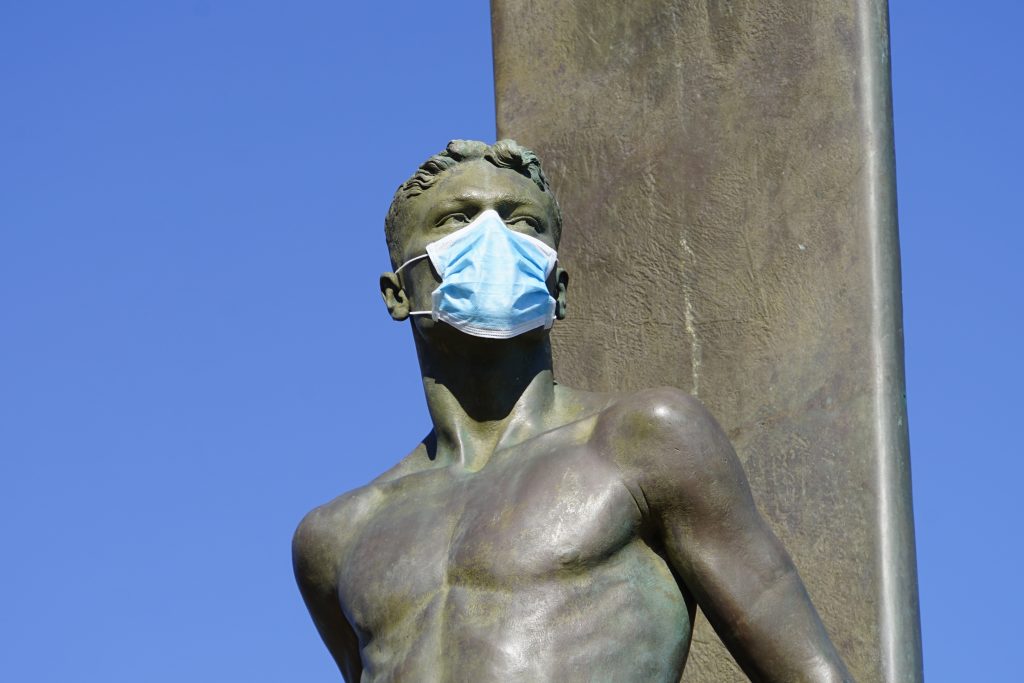
TRANSCRIPT
Editor’s note: Transcripts are usually only available to our members. We offer this transcript free to everyone as a public service.
KARA MEYBERG GUZMAN: This episode of Santa Cruz Local is sponsored by UC Santa Cruz. UC Santa Cruz tells its story every other week in its StoryCruz podcast. Listen to conversations about UC Santa Cruz news, research, breakthroughs, people and events. Find StoryCruz on Stitcher, iTunes, and Google Play.
[MUSIC]
KMG: Coronavirus seems to be on everyone’s minds.
The scene in Santa Cruz County on Thursday.
Many companies have told employees to work from home. Santa Cruz Warriors games downtown have been canceled. A business expo at the Cocoanut Grove, postponed. Most classes at Cabrillo and UC Santa Cruz have gone online.
As of Thursday night, the county has seven confirmed cases of the COVID-19 coronavirus.
Anxiety levels are up, to say the least.
Especially at Costco in Santa Cruz. I went there on Thursday afternoon. I spotted four people shopping in surgical masks. Toilet paper’s sold out. So are paper towels.
Outside, I spoke to Alex Hernandez. She’s a senior at UC Santa Cruz. She’s 21.
ALEX HERNANDEZ: I mean, coming here to grocery shop as a low budget kind of person — I kind of need things really quickly. And it’s a lot of necessities, especially. Because I live in a big house, a big college house, it gets kind of dirty. That’s kind of like, troublesome for me to see, like, basic cleaning supplies, and like, water, toilet paper, is much more scarce than it was before.
KMG: I’m Kara Meyberg Guzman
STEPHEN BAXTER: And I’m Stephen Baxter.
KMG: This is Santa Cruz Local.
In this episode we’re going to talk about who can get tested for the new coronavirus, what’s the availability of testing kits and what you can do to help prevent the spread of this virus in our community.
SB: You probably already know, the coronavirus is spreading throughout the world. The most cases are in China, Italy and Iran. It’s a flu-like illness. Symptoms include fever, cough and shortness of breath. People older than 60 are particularly vulnerable, according to the Centers for Disease Control.
Wednesday in Santa Cruz County, health officials announced the first coronavirus patient who caught it from someone in our community. The previous cases were people who recently traveled outside of the county. They expect more cases beyond the seven that have been confirmed as of Thursday night.
One of the cases was at Rio del Mar Elementary School.
KMG: To get an idea of what the county is doing to limit the spread of the virus, I spoke to Mikala Caton. She’s an epidemiologist at the county. I spoke to her Thursday at her office on Emeline Avenue in Santa Cruz.
I asked her if she thought we were overreacting with all of these closures and cancellations.
MIKALA CATON: I don’t think that we’re overreacting. I think people may be concerned with the disruption that’s occurring in their daily life. But we have to impart social distancing in closing these large congregate settings so that we can protect members of our community who are at higher risk of these severe outcomes of COVID-19.
And although 80% of the people who get it have those more mild to moderate symptoms, so far there isn’t a treatment. There isn’t a vaccine for it, and that’s very scary for members of our community who are immunocompromised, or elderly or have underlying health conditions.
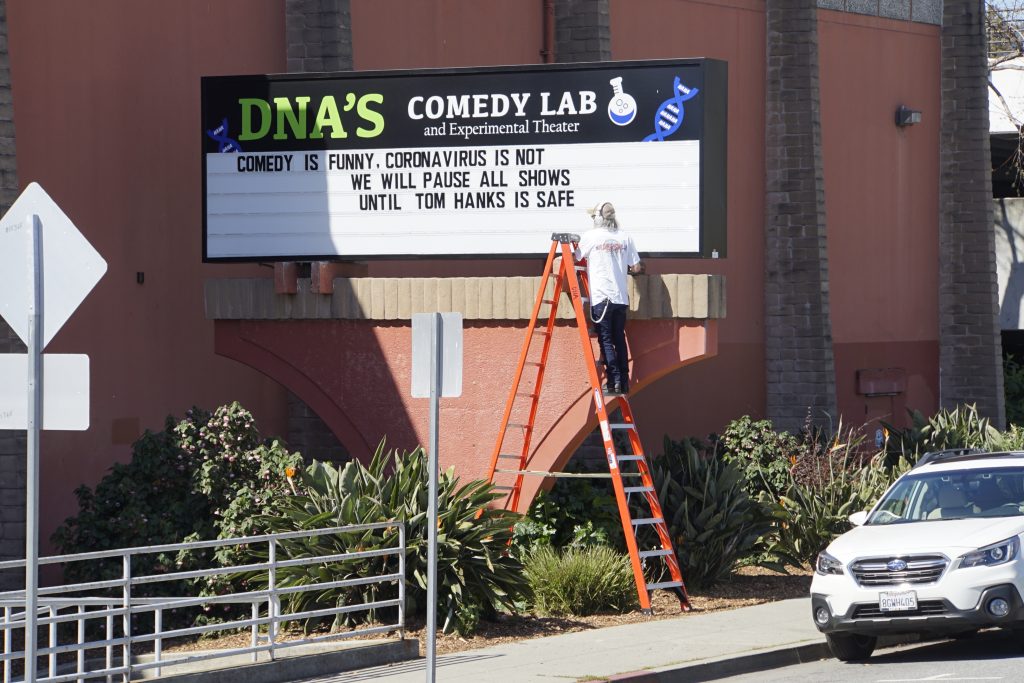
KMG: I saw on the county’s website that people over 60 are considered at high risk. Is that right?
CATON: That is correct, yeah.
KMG: I’ve heard some skepticism from people over 60 who say, I don’t feel immunocompromised. Why is 60 the threshold?
CATON: I think we established that threshold, and I said that in air quotes, because things are likely to change as we learn more.
But it was based off of the data that was coming out of China and other countries and seeing how the virus was moving through those populations and who was really affected the most.
And it was people over 60 with underlying health conditions.
KMG: What’s the rubric for who gets tested?
CATON: Well, it’s really up to our discretion and the health officer’s discretion, but what we’ve been trying to stick to is, how severe are their clinical symptoms and then a set of epidemiological risk factors.
Some of those risk factors include known contact to a laboratory-confirmed COVID-19 case. Having returned from a level two or three country that CDC has been announcing pretty regularly. Or being a healthcare worker and having close contact with a possible case. So that’s one of the priorities, yeah.
But unless they are symptomatic, we can’t conduct testing, and that’s kind of the critical point there, is that you have to be symptomatic to get testing.
KMG: Yeah, what kind of testing is going on right now in the county with people who are symptomatic?
CATON: So, all of our testing right now is going out of county. So, we partner with Santa Clara [County] lab mostly for testing. Although, you know, the capacity there is limited. They’re only running probably less than 100 tests a day. And they’re also doing labs for other counties too because not every public health jurisdiction has a public health lab. So we’re working very closely with our partners in that.
And then, of course, there’s also testing at the state level as an option. And now, commercial testing has come on board with companies like Quest and LabCorp, yeah.
KMG: So there is capability in the county, but it’s limited by how much Santa Clara can do?
CATON: Right, and so what we’re doing to address that is really prioritize the calls that we get from providers around their patients, and if we can’t accommodate testing through our county public health lab, we always recommend that if the provider is strongly suspicious of COVID-19, that they go ahead and test through the commercial labs. There’s, that’s completely up to the provider.
KMG: Oh, OK. So what’s your knowledge of the availability of commercial testing? Like, is that sort of the more available route right now for clinics?
CATON: Yeah, it absolutely is. And that’s kind of what normally happens with other diseases too, so I’m really glad that the commercial testing is on board. Quest had at one time reported that they can do 1,300 tests a day. But apparently they’re at capacity and overwhelmed with testing. I think that’s a temporary thing. I think as we get more used to this process, you know, capacity will increase. It’s just a matter of time.
KMG: Doctors in Santa Cruz County who want to test patients for the coronavirus have access to testing kits. So far, the limiting factor has been the labs’ ability to process those kits.
SB: I talked to a representative from Quest Diagnostics on Thursday. She said that they’re ramping up their capabilities. They will have done several thousand tests this week. And in the next six weeks, they plan to do tens of thousands of tests.
KMG: I asked Mikala a few more questions.
KMG: Given what you know about our county’s capacity right now to deal with a possible outbreak and the availability of beds here for people who are infectious, what’s your take on how worried people should be?
CATON: I would say, don’t be afraid, just be prepared. And what I mean by that is, just be mentally and physically prepared. So, if that means that your day-to-day life is going to be disrupted, if you have a child and their school may be closed, think about how that’s going to impact your life and have a game plan.
I think just that notion of getting your general preparedness, if you have medications that you rely on, have, make sure that you’re talking to your doctor and you have a few weeks’ supply of those, if for whatever reason you’re quarantined and you can’t go pick them up.
And it’s a lot of what-if scenarios, but just having that general preparedness is always really important.
KMG: What is the latest on what we know about how the virus is spread?
CATON: It’s primarily spread through respiratory droplets. So that means inhaling or coming into contact with sneezing and coughing people, most pretty directly, at close contact, meaning within six feet. You know, we’re still learning more and more about how it’s transmitted and there have been some reports of possible asymptomatic transmission. But we, there’s not a lot of research on that yet and so it’s not thought to be the primary route, or way.
KMG: What steps are you taking? Like, take me through your day. What are you personally doing to prevent your exposure to this virus?
CATON: So, the first thing I do every day is I’m looking at the CDC website for updated guidance on what we know about coronavirus, which states or counties are being impacted the most. There’s this wonderful website developed by Johns Hopkins that shows a data dashboard of cases, almost in real time, and where they’re located. So just being up to date on the most current information from vetted sources, I think is the primary thing you can do. And we have our website as well and we’re trying to update that.
And then the other thing that I do is wash my hands constantly. I think as we’re learning more and more about who is infected and how it is being spread, that’s really important and limiting how many times you touch your face. I know myself, I tend to run my hands through my hair and touch my face pretty frequently. But even doing things like that can really limit how much you are exposed to, especially now, not just with, you know, this novel coronavirus, but the fact that we’re still in flu season.
So those are just some of the few key takeaways that I try and reiterate.
KMG: What is it that you’d really want people to know?
CATON: If you’re sick, stay home.
And if you’re really worried that your symptoms align with COVID-19, call your provider ahead of time. Schedule an appointment. Let them know, so they can come out to meet you, outside, and give you a mask if necessary, and assess you in a way to limit exposure to other people.
If you’re not very ill, you know, you can recover at home. We really don’t want to over-impact or overwhelm our health care facilities right now. I think we really want, and urge people, to take a little responsibility in mitigating spread. Because our county is doing a lot of work in responding, but it really does take the whole community.
[MUSIC]
SB: Last week, Santa Cruz County Health Officer Gail Newel declared a local health emergency. This is not a measure of how bad the outbreak is. It simply allows the county to get possible state and federal emergency funding.
Part of the reason you’ve seen so many meetings and events and gatherings cancelled this week is because the county just put out this set of guidelines. They’re called “social distancing guidelines.” They’re basically recommendations for event planners about when to cancel.
Here’s Mimi Hall. She’s the Santa Cruz County Health Services Agency Director. She spoke at Tuesday’s board of supervisors meeting.
MIMI HALL: These guidelines are intended to ensure that across our entire community, we reduce any opportunity for transmission. And the period of two weeks is the period of time that we would typically monitor anyone who has potential exposure to COVID-19. And I know it’s difficult. It may have many, many impacts on families, on the local economy. I hope that the federal and state government will have some measures to alleviate those concerns. But our first and primary concern right now is protecting our community.
SB: Among the guidelines:
- If you’re 60 or older, limit your outings. Don’t attend gatherings of 50 people or more.
- Second, if you’re planning an event of 50 people or more, consider cancelling it. At the very least, have a way for people to wash their hands.
- And then third, disinfect surfaces like counters and rails or door knobs or anything that’s frequently touched.
- And then fourth, try to work from home if possible. Have a child care plan, if possible. Your kid’s school may be closed for two weeks or more.
MIMI HALL: Our ask is that every individual, every family, every business, every organization, every church, think outside the box about how they can help their neighbors. So for example, if one of our schools should close or a few of our schools or whole districts should close employers who have the flexibility could think about allowing well children to be at the workplace with their parents just for a period of time. There are many, many other examples and I encourage the community to feel empowered. You don’t need to wait for government to tell you to do these things. You have all of these things within your power and we’re asking the whole community to come together and assist us.
SB: A new development Thursday was that Gov. Gavin Newsom said that you can’t have gatherings of 250 people or more. Newsom said that he considers it mandatory, according to the Mercury News.
KMG: We’ll keep tracking the local response to the coronavirus as the story unfolds. Besides health impacts, there’s bound to be many economic impacts over the next several weeks and possibly months.
In the meantime, we heard one piece of advice from the City of Santa Cruz’s economic development department on Thursday. Department leaders are advising small business owners to track any losses that they think might be related to the virus. For example, if you’re a catering business and your events are cancelled, what are the costs of the food that spoiled? There may be money available for you down the line.
SB: Schools. As we were recording this, we got word from the Santa Cruz County Office of Education that they were going to close all [public] Santa Cruz County Schools from the week of March 16 to the 20th.
Now, Mimi Hall, the Health Services Agency director for the county, had said that they were only going to advise schools to close if they had a confirmed patient within that school. This letter, Thursday night, from the county health officer Gail Newel, said that while the number of cases in our county remains small at this time, the Santa Cruz County public health division expects these numbers to grow significantly in the coming days and weeks, which may require a continued response.
They also mention that several other districts in the state are making similar choices, including San Francisco Unified.
KMG: Before we go, we want to hear what your questions are about the local response to the coronavirus. We have a survey. It’s on our website at santacruzlocal.org. We’ve also linked to it in the show notes.
We’ll take the most frequently asked questions to our county leaders and we’ll report back what we hear.
We also want to hear how the local response to the coronavirus is affecting you personally.
And, we want to hear your solutions. You heard Mimi Hall ask the community to help each other. What are you, your business or your neighborhood doing to help our community get through this time?
Again, reach us in our survey, it’s at santacruzlocal.org.
Stephen, how about you? How has the coronavirus affected you?
SB: Well, my daughter’s preschool has been cancelled for all of next week. The plan is for her to stay at her grandmother’s in that time. So that’s causing some anxiety.
What’s — the other thing that’s been running in my mind is that in other places like Italy, hospitals are overrun, right? Like, nurses and doctors don’t know what to do with all these patients. So, I’m thinking, well, what can we do to support nurses and doctors on the front lines of this coronavirus?
And so I talked to my nurse friend today. The first thing she said is, try not to spread medical information that’s not from real sources like the CDC. And the second was, if you have friends or family in the hospital, consider not visiting them, just so you don’t clog the hospitals.
Kara, how’s the local response to coronavirus affected you personally?
KMG: Honestly, not that much personally. Professionally, yes. As a journalist in this county it’s the biggest news story we have going on this week. I feel like things really changed in the last day or so since the county made the announcement that the virus is spreading from person to person in the county.
Going around in the community, it’s the thing that everybody’s talking about.
In terms of a tip I can share, I have this bad habit of touching my face. I guess it’s a nervous habit or something. But one way I’ve found to break that is, I’ve made this vow with myself that every time I touch my phone, I wash my hands. So it’s actually led me to looking at my phone less, washing my hands more, and just like, being really conscious of how dirty hands are, so I just stop touching my face altogether.
SB: Good, good good.
KMG: [Laughs]
[MUSIC]
KMG: Sign up for our email newsletter. It’s free. It’s an easy way to get your local news and we’re in your inbox two to three times a week. Sign up is at santacruzlocal.org
If you’re on our newsletter already, share it with a friend. We have about 1,200 people on our newsletter right now, and we’re trying to double that by the end of April.
Thank you to our guardian level members: Chris Neklason, Patrick Reilly, Elizabeth and David Doolin and the Kelley Family.
You, too, can become a member. It’s the main way we get funding. Membership signup is at santacruzlocal.org/membership.
I’m Kara Meyberg Guzman.
SB: And I’m Stephen Baxter.
KMG: Thanks for listening to Santa Cruz Local.
SB: Here’s some bonus tape of Santa Cruz County board chairman Greg Caput. It’s from Tuesday’s supervisors meeting.
GREG CAPUT: I know with school kids, you know, they bring home a lot of things that go through families and all that. I have five kids and so, you know, we tell them to of course wash their hands and everything like that.
I know my wife went out to buy some hand sanitizer and they’re sold out everywhere. So what I did at my house — I don’t know if it works or not, but I think it does. We have a bottle of whiskey and I just have them rub some whiskey on their hands. So, when they go to school, if the teacher smells a little bit of whiskey, they’re not drinking it. They’re just rubbing it on their hands. Does that help?
MIMI HALL: I’d like to make — here’s my message to everyone. It’s a good closing message. Because we recommend that there be hand sanitizer available widely. There’s a shortage. There’s a shortage even for businesses, employers and health care facilities. So good old-fashioned hand washing, most of us have access to soap and water. And I would say that when your kids come home — when anyone comes home — I have kids as well. As soon as they come home — even before COVID-19 — come home and wash your hands.
Kara Meyberg Guzman is the CEO and co-founder of Santa Cruz Local. Prior to Santa Cruz Local, she served as the Santa Cruz Sentinel’s managing editor. She has a biology degree from Stanford University and lives in Santa Cruz.
Stephen Baxter is a co-founder and editor of Santa Cruz Local. He covers Santa Cruz County government.


